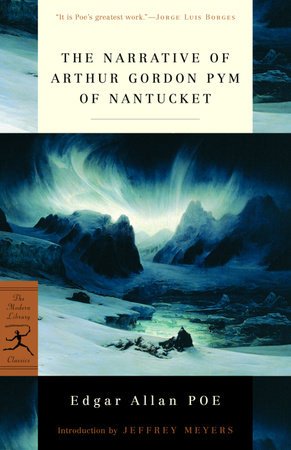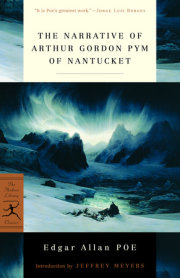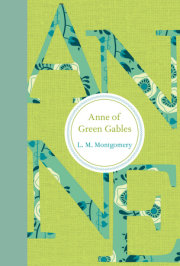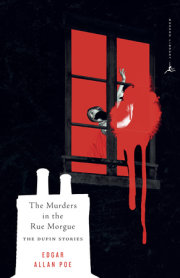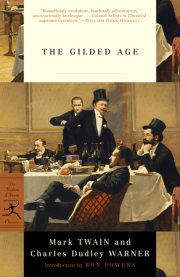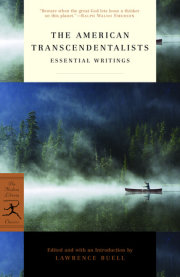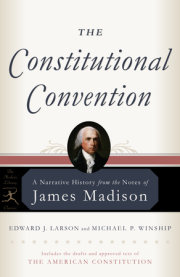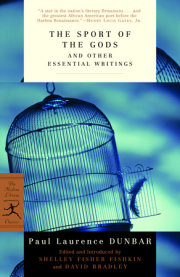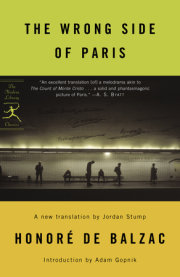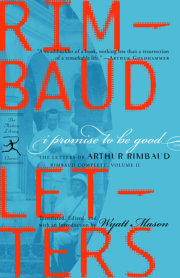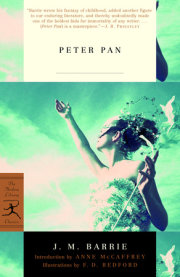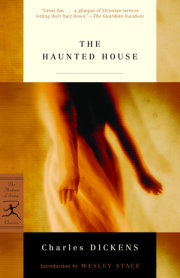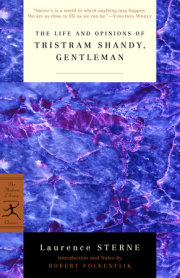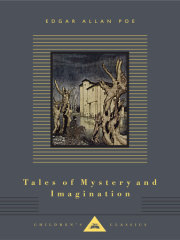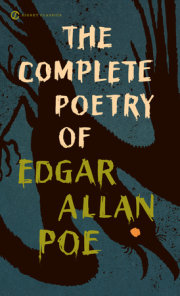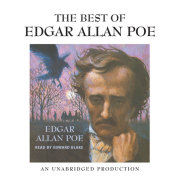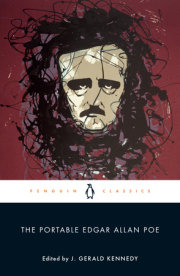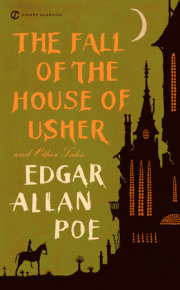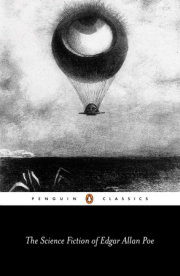Chapter IMy name is Arthur Gordon Pym. My father was a respectable trader in sea-stores at Nantucket, where I was born. My maternal grandfather was an attorney in good practice. He was fortunate in everything, and had speculated very successfully in stocks of the Edgarton New-Bank, as it was formerly called. By these and other means he had managed to lay by a tolerable sum of money. He was more attached to myself, I believe, than to any other person in the world, and I expected to inherit the most of his property at his death. He sent me, at six years of age, to the school of old Mr. Ricketts, a gentleman with only one arm, and of eccentric manners-he is well known to almost every person who has visited New Bedford. I stayed at his school until I was sixteen, when I left him for Mr. E. Ronald's academy on the hill. Here I became intimate with the son of Mr. Barnard, a sea captain, who generally sailed in the employ of Lloyd and Vredenburgh-Mr. Barnard is also very well known in New Bedford, and has many relations, I am certain, in Edgarton. His son was named Augustus, and he was nearly two years older than myself. He had been on a whaling voyage with his father in the John Donaldson, and was always talking to me of his adventures in the South Pacific Ocean. I used frequently to go home with him, and remain all day, and sometimes all night. We occupied the same bed, and he would be sure to keep me awake until almost light, telling me stories of the natives of the Island of Tinian, and other places he had visited in his travels. At last I could not help being interested in what he said, and by degrees I felt the greatest desire to go to sea. I owned a sail-boat called the Ariel, and worth about seventy-five dollars. She had a half-deck or cuddy, and was rigged sloop-fashion-I forget her tonnage, but she would hold ten persons without much crowding. In this boat we were in the habit of going on some of the maddest freaks in the world; and, when I now think of them, it appears to me a thousand wonders that I am alive to-day.
I will relate one of these adventures by way of introduction to a longer and more momentous narrative. One night there was a party at Mr. Barnard's, and both Augustus and myself were not a little intoxicated towards the close of it. As usual, in such cases, I took part of his bed in preference to going home. He went to sleep, as I thought, very quietly (it being near one when the party broke up), and without saying a word on his favourite topic. It might have been half an hour from the time of our getting in bed, and I was just about falling into a doze, when he suddenly started up, and swore with a terrible oath that he would not go to sleep for any Arthur Pym in Christendom, when there was so glorious a breeze from the southwest. I never was so astonished in my life, not knowing what he intended, and thinking that the wines and liquors he had drunk had set him entirely beside himself. He proceeded to talk very coolly, however, saying he knew that I supposed him intoxicated; but that he was never more sober in his life. He was only tired, he added, of lying in bed on such a fine night like a dog, and was determined to get up and dress, and go out on a frolic with the boat. I can hardly tell what possessed me, but the words were no sooner out of his mouth than I felt a thrill of the greatest excitement and pleasure, and thought his mad idea one of the most delightful and most reasonable things in the world. It was blowing almost a gale, and the weather was very cold-it being late in October. I sprang out of bed, nevertheless, in a kind of ecstasy, and told him I was quite as brave as himself, and quite as tired as he was of lying in bed like a dog, and quite as ready for any fun or frolic as any Augustus Barnard in Nantucket.
We lost no time in getting on our clothes and hurrying down to the boat. She was lying at the old decayed wharf by the lumber-yard of Pankey & Co., and almost thumping her sides out against the rough logs. Augustus got into her and bailed her, for she was nearly half full of water. This being done, we hoisted jib and mainsail, kept full, and started boldly out to sea.
The wind, as I before said, blew freshly from the southwest. The night was very clear and cold. Augustus had taken the helm, and I stationed myself by the mast, on the deck of the cuddy. We flew along at a great rate-neither of us having said a word since casting loose from the wharf. I now asked my companion what course he intended to steer, and what time he thought it probable we should get back. He whistled for a few minutes, and then said crustily, "I am going to sea-you may go home if you think proper." Turning my eyes upon him, I perceived at once that, in spite of his assumed nonchalance, he was greatly agitated. I could see him distinctly by the light of the moon-his face was paler than any marble, and his hand shook so excessively that he could scarcely retain hold of the tiller. I found that something had gone wrong, and became seriously alarmed. At this period I knew little about the management of a boat, and was now depending entirely upon the nautical skill of my friend. The wind, too, had suddenly increased, as we were fast getting out of the lee of the land-still I was ashamed to betray any trepidation, and for almost half an hour maintained a resolute silence. I could stand it no longer, however, and spoke to Augustus about the propriety of turning back. As before, it was nearly a minute before he made answer, or took any notice of my suggestion. "By-and-by," said he at length-"time enough-home by-and-by." I had expected a similar reply, but there was something in the tone of these words which filled me with an indescribable feeling of dread. I again looked at the speaker attentively. His lips were perfectly livid, and his knees shook so violently together that he seemed scarcely able to stand. "For God's sake, Augustus," I screamed, now heartily frightened, "what ails you!-what is the matter?-what are you going to do?" "Matter!" he stammered, in the greatest apparent surprise, letting go the tiller at the same moment, and falling forward into the bottom of the boat-"matter!-why, nothing is the-matter-going home-d-d-don't you see?" The whole truth now flashed upon me. I flew to him and raised him up. He was drunk-beastly drunk-he could no longer either stand, speak, or see. His eyes were perfectly glazed; and as I let him go in the extremity of my despair, he rolled like a mere log into the bilge-water from which I had lifted him. It was evident that, during the evening, he had drunk far more than I suspected, and that his conduct in bed had been the result of a highly-concentrated state of intoxication-a state which, like madness, frequently enables the victim to imitate the outward demeanour of one in perfect possession of his senses.4 The coolness of the night air, however, had had its usual effect-the mental energy began to yield before its influence-and the confused perception which he no doubt then had of his perilous situation had assisted in hastening the catastrophe. He was now thoroughly insensible, and there was no probability that he would be otherwise for many hours.
It is hardly possible to conceive the extremity of my terror. The fumes of the wine lately taken had evaporated, leaving me doubly timid and irresolute. I knew that I was altogether incapable of managing the boat, and that a fierce wind and strong ebb tide were hurrying us to destruction. A storm was evidently gathering behind us; we had neither compass nor provisions; and it was clear that, if we held our present course, we should be out of sight of land before daybreak. These thoughts, with a crowd of others equally fearful, flashed through my mind with a bewildering rapidity, and for some moments paralyzed me beyond the possibility of making any exertion. The boat was going through the water at a terrible rate-full before the wind-no reef in either jib or mainsail-running her bows completely under the foam. It was a thousand wonders she did not broach to-Augustus having let go the tiller, as I said before, and I being too much agitated to think of taking it myself. By good luck, however, she kept steady, and gradually I recovered some degree of presence of mind. Still the wind was increasing fearfully; and whenever we rose from a plunge forward, the sea behind fell combing over our counter, and deluged us with water. I was so utterly benumbed, too, in every limb, as to be nearly unconscious of sensation. At length I summoned up the resolution of despair, and rushing to the mainsail, let it go by the run. As might have been expected, it flew over the bows, and, getting drenched with water, carried away the mast short off by the board. This latter accident alone saved me from instant destruction. Under the jib only, I now boomed along before the wind, shipping heavy seas occasionally over the counter, but relieved from the terror of immediate death. I took the helm, and breathed with greater freedom as I found that there yet remained to us a chance of ultimate escape. Augustus still lay senseless in the bottom of the boat; and as there was imminent danger of his drowning (the water being nearly a foot deep just where he fell), I contrived to raise him partially up, and keep him in a sitting position, by passing a rope round his waist, and lashing it to a ringbolt in the deck of the cuddy. Having thus arranged everything as well as I could in my chilled and agitated condition, I recommended myself to God, and made up my mind to bear whatever might happen with all the fortitude in my power.
Hardly had I come to this resolution, when, suddenly, a loud and long scream or yell, as if from the throats of a thousand demons, seemed to pervade the whole atmosphere around and above the boat. Never while I live shall I forget the intense agony of terror I experienced at that moment. My hair stood erect on my head-I felt the blood congealing in my veins-my heart ceased utterly to beat, and without having once raised my eyes to learn the source of my alarm, I tumbled headlong and insensible upon the body of my fallen companion.
Copyright © 2002 by Edgar Allan Poe. All rights reserved. No part of this excerpt may be reproduced or reprinted without permission in writing from the publisher.

